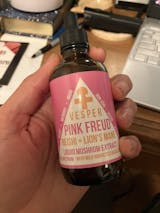Mushrooms for ADHD:
Harnessing Nature's Power - Functional Mushrooms as a Novel Approach for ADHD Management
In the realm of alternative therapies for managing Attention Deficit Hyperactivity Disorder (ADHD), functional mushrooms have emerged as a captivating avenue.These remarkable organisms, long venerated in traditional medicine systems, are now garnering attention for their potential to support brain health and address ADHD symptoms. This blog post delves into the world of functional mushrooms, exploring their unique bioactive compounds and their role in enhancing focus, cognitive function, and overall well-being in individuals with ADHD.
Of course, we can't claim to know better than your doctor what things will work best for you and it is important to remember that we are exploring some of the science being done but not recommending any of these mushrooms as treatments or therapies.
Understanding Functional Mushrooms for ADHD
Functional mushrooms, also known as adaptogenic or medicinal mushrooms, are a diverse group of fungi that contain bioactive compounds with a range of health benefits. From boosting the immune system to reducing stress, these mushrooms have been valued for centuries in various cultures. In recent years, scientific research has shed light on their potential to positively impact brain health and cognitive function, making them an intriguing option for those seeking natural ways to manage ADHD.
- Lion's Mane (Hericium erinaceus) Extract: Nurturing Neuronal Networks
At the forefront of functional mushrooms for ADHD is Lion's Mane, celebrated for its unique appearance resembling a lion's mane and its impressive impact on brain health. Lion's Mane extract contains compounds that stimulate the production of Nerve Growth Factor (NGF), a protein crucial for the growth and maintenance of nerve cells. By fostering neurogenesis and promoting the development of new neural connections, Lion's Mane extract could potentially improve cognitive function and focus, making it a noteworthy contender for ADHD management.
Lion's mane extract is probably the best landing spot for anyone looking to add a functional mushroom to their regimen for managing ADHD, based on studies.
- Cordyceps (Cordyceps sinensis) Extract: Energizing Mind and Body
Cordyceps Extract is renowned for its adaptogenic properties, which help the body adapt to stressors and restore balance. For individuals with ADHD, stress management is pivotal, as stress can exacerbate symptoms. Cordyceps Extract may offer a two-fold benefit by reducing stress responses and enhancing cognitive function. By supporting the body's energy production and oxygen utilization, Cordyceps Extract could potentially contribute to improved focus, attention, and overall mental clarity.
Cordyceps extract used in conjunction with Lion's Mane extract, like this extract linked here, could offer a great way to feel limitless.
- Reishi (Ganoderma lucidum) Extract: Serenity for a Clear Mind
ADHD often coexists with sleep disturbances and emotional challenges. Reishi Extract, with its calming and stress-reducing properties, could play a significant role in promoting restful sleep and emotional well-being. By modulating the body's stress response and promoting relaxation, Reishi Extract may indirectly support ADHD symptom management by improving sleep quality and emotional resilience. Reishi Extract is, as they say, the mushroom of immortality.
Due to the magnificent nature of reishi and lion's mane on their own, one might find it beneficial to use both together. Pink Freud is a popular blend of both. Check it out!
- Chaga (Inonotus obliquus) Extract: Antioxidant Armor for Brain Health
Chaga Extract is celebrated for its exceptionally high antioxidant content, which helps protect cells from oxidative stress and inflammation. The brain is particularly vulnerable to oxidative damage, and this vulnerability could contribute to ADHD symptoms. Chaga Extract's potential neuroprotective properties could offer a shield for brain health, potentially mitigating some ADHD-related challenges.
- Maitake (Grifola frondosa) Extract: Balancing the Brain's Chemistry
ADHD is often associated with imbalances in neurotransmitters, the brain's chemical messengers. Maitake mushrooms contain compounds that may help regulate neurotransmitter levels, potentially promoting more stable mood and focus. While research in this area is ongoing, Maitake's potential to influence neurotransmitter balance makes it an intriguing subject for ADHD management studies.
The potential of functional mushrooms in managing ADHD symptoms presents an exciting avenue for exploration. These natural wonders, with their neurotrophic, adaptogenic, and antioxidant properties, hold promise for enhancing cognitive function, promoting focus, and fostering emotional well-being. However, it is essential to approach the integration of functional mushrooms into an ADHD management plan with the understanding that consulting a qualified healthcare professional is crucial to ensure safety and efficacy, as individual responses can vary. As research in this field continues to evolve, functional mushrooms may carve out a meaningful niche in the comprehensive approach to ADHD management, harnessing the power of nature to nurture the mind.



















